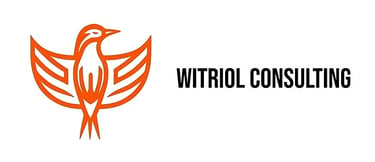How to Approach a Business to Be a Mentor in a Mentor-Protégé Program
For small businesses—especially in the federal contracting or public sector space—joining a Mentor-Protégé Program can be the single most powerful accelerator for growth. These programs, championed by the SBA, DoD, and other agencies, pair small businesses (protégés) with experienced large businesses (mentors) to help them develop the skills, relationships, and capabilities needed to win bigger contracts. The challenge? Securing the right mentor requires a thoughtful, strategic approach. You’re not just asking for guidance—you’re proposing a mutually beneficial business partnership. In this blog, we’ll break down how to identify, approach, and secure a mentor in a way that earns their respect, builds trust, and opens doors to long-term success.
MICROSOFTEQORGANIZATIONMENTORCOMMAND ECONOMYSTRATEGIC PARTNERSHIPSMANAGEMENT CONSULTINGMERGERSTRADITIONAL ECONOMYMARKET ECONOMY8(A)CONSULTINGPARTNERSHIPSGROWTHACQUISITIONSLEADERSHIPSTRATEGYCYBERSECURITYMIXED ECONOMYGOVERNMENT CONTRACTSFEDERAL CONTRACTINGMARKETING STRATEGYTEAMWORKMENTORSHIPCOMPLIANCESUCCESSTRAININGCREATING VALUELEADERSTIME MANAGEMENTFEDERAL CONTRACTS
Shaun Witriol
8/9/20254 min read


How to Approach a Business to Be a Mentor in a Mentor-Protégé Program
Introduction: Unlocking Growth Through Mentorship
For small businesses—especially in the federal contracting or public sector space—joining a Mentor-Protégé Program can be the single most powerful accelerator for growth. These programs, championed by the SBA, DoD, and other agencies, pair small businesses (protégés) with experienced large businesses (mentors) to help them develop the skills, relationships, and capabilities needed to win bigger contracts.
The challenge? Securing the right mentor requires a thoughtful, strategic approach. You’re not just asking for guidance—you’re proposing a mutually beneficial business partnership.
In this blog, we’ll break down how to identify, approach, and secure a mentor in a way that earns their respect, builds trust, and opens doors to long-term success.
1. Understanding the Mentor-Protégé Program Landscape
Before reaching out to potential mentors, it’s important to understand the rules, benefits, and expectations of the specific program you want to join.
SBA All Small Mentor-Protégé Program (ASMPP): Allows all small businesses to partner with large businesses for joint ventures, subcontracting, and business development.
DoD Mentor-Protégé Program: Specifically for defense contractors, focusing on cybersecurity, manufacturing, and supply chain development.
Agency-Specific Programs: Agencies like NASA, DHS, and GSA have tailored mentor-protégé initiatives.
Key takeaway: Each program has its own eligibility requirements, documentation, and compliance standards. If you approach a potential mentor without knowing the details, it signals you’re unprepared.
2. Identifying the Right Mentor
Your success depends heavily on selecting a mentor whose goals and capabilities align with yours. Look for companies that:
✅ Operate in your target market (e.g., federal contracting, utilities, infrastructure, IT)
✅ Have a history of subcontracting or teaming with small businesses
✅ Can offer the capabilities, past performance, or certifications you lack
✅ Share similar values, culture, and commitment to compliance
Research methods:
Search SAM.gov for awardees in your target NAICS codes
Review USASpending.gov to identify top federal contractors
Attend industry events, conferences, and match-making sessions
Use LinkedIn to find Business Development Managers or Small Business Liaison Officers (SBLOs)
3. Preparing Your Value Proposition
A common mistake is approaching a mentor with only what you want from them. Large businesses get dozens of these requests—they respond best when they see what’s in it for them.
Your value proposition should answer:
How will partnering with you help them meet small business participation goals?
Do you bring niche expertise (e.g., cybersecurity, ERP, sustainability) they lack?
Can your certifications (e.g., 8(a), HUBZone, MBE, LSBE) strengthen their bid scoring?
Are you agile and responsive in ways larger firms can’t match?
📌 Pro Tip: Include metrics if possible—“Our team helped increase proposal win rates by 25% for partners in the past year.”
4. Crafting an Effective Outreach Strategy
When approaching a business to be your mentor, the first impression is everything.
Email Outreach Example:
Subject: Partnership Opportunity – Mentor-Protégé Program
Dear [Name],
My name is [Your Name], and I’m the founder of [Your Company], a [certifications] business specializing in [capabilities]. I admire your work in [specific contracts/projects] and believe we could be an excellent match for the [Mentor-Protégé Program name].
We bring [brief value proposition—2-3 bullet points], and I would welcome the opportunity to explore how we could collaborate on future bids and projects.
Would you be open to a 20-minute virtual meeting to discuss mutual opportunities?
Best regards,
[Your Name]
5. Making Your Pitch Stand Out
During your first meeting, keep it short, focused, and benefit-driven.
What to include in your pitch:
Your elevator pitch (30 seconds: who you are, what you do, what makes you unique)
Certifications and how they benefit mentor’s federal contracting strategy
Past performance highlights (brief case studies or results)
Specific ways you can help them win or deliver projects
Mutual growth opportunities
Remember—mentors often look for protégés who already demonstrate discipline, compliance, and a proactive approach.
6. Leveraging Networking Events
Face-to-face connections still carry more weight than cold emails.
Where to network:
PTAC and APEX Accelerator matchmaking events
Industry Day sessions for federal agencies
Large business outreach programs (often advertised on agency websites)
Professional associations like NDIA, SAME, AFCEA
At events, your goal is not to “sell” the program right away—it’s to establish rapport and credibility so that a follow-up email or meeting is a natural next step.
7. Addressing the Mentor’s Concerns
Even if a company likes you, they’ll evaluate:
Compliance risk – Can you meet federal contracting standards?
Capability gaps – Do you have enough capacity for joint projects?
Long-term fit – Will this relationship benefit them beyond one contract?
Be ready with answers, examples, and documentation to reduce perceived risk.
8. Structuring the Proposal
Once interest is established, formalize your request in a Mentor-Protégé proposal.
Include:
Introduction – Who you are, certifications, mission
Mutual Benefits – How both parties gain
Development Plan – Specific skills, systems, and processes the mentor will help you develop
Compliance & Program Requirements – Your readiness to meet SBA or agency rules
Next Steps – Drafting and submitting the official application
9. Following Up Without Overstepping
If you don’t get a response immediately, don’t assume disinterest. Large contractors are busy—timing is key.
Follow-up tips:
Send a thank you email within 24 hours of any meeting
Share relevant industry news, awards, or contract wins that show your momentum
Respectfully check in every 3–4 weeks with a specific ask (e.g., “Can we review the draft MPP application together?”)
10. Building the Relationship Beyond the Application
The most successful mentor-protégé relationships go far beyond just winning contracts.
Ongoing actions:
Provide regular updates on your business growth and wins
Seek feedback on proposals and operations
Offer support on mentor’s projects when possible
Share networking and speaking opportunities
Your mentor is more likely to champion you internally and externally when they see you’re invested, reliable, and growth-oriented.
Key Takeaways
If you want your outreach and online presence to work in your favor:
Create a capability statement page on your website with “mentor-protégé program” keywords
Publish case studies and blogs that showcase your expertise
Optimize your LinkedIn with program-related phrases and certifications
Conclusion: Taking the First Step Toward Your Mentor
Approaching a business to be your mentor in a Mentor-Protégé Program is part art, part science. You need to research, prepare, and present your business as a valuable asset—not just a beneficiary.
By identifying the right companies, clearly communicating your value, and demonstrating readiness for compliance and execution, you can secure a mentor who will help you open doors, sharpen your capabilities, and grow your business in the public sector and federal contracting space.
👉Like and follow Witriol Consulting on LinkedIn, Instagram, Facebook, and YouTube for more insights and strategies on effective leadership and time management.
Current Certifications
Small Local Business Enterprise (SLBE) - (San Diego)
Local Small Business Enterprise - (LSBE) - (Los Angeles)
Minority Owned Business (MBE) - (San Diego and Los Angeles, Federal)
Small Business (Micro) - (California)
Disadvantaged Business Enterprise - (California, Arizona, Oregon, Hawaii)
Small Disadvantaged Business - (Federal)
Asian Pacific Business Enterprise - (Federal)
Pending Certifications
8a - (Federal)
© 2024. All rights reserved.


certifications
consultations
